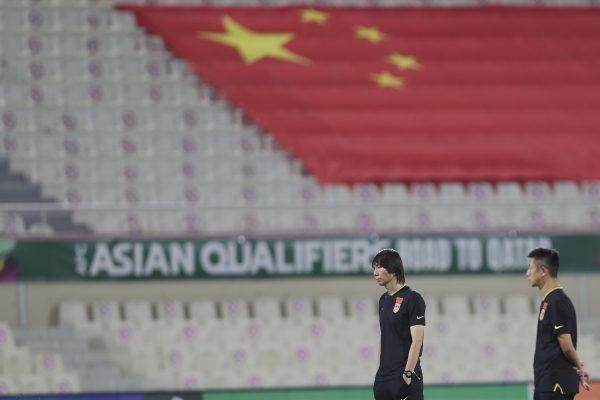Every four years, when the Fifa World Cup fever sweeps the globe and engulfs billions of fans, the question arises: Why isn’t China, a global force in the Olympics, able to find 11 players among its hundreds of millions of eligible males to assemble a squad that can qualify? This report analyzes economic, demographic, cultural, and climatic elements that affected international football performance in 2002, the last time China qualified for the World Cup.
Economic wealth was determined to be significant, but only to a certain extent. A country’s population size did not matter unless it had a sizable percentage of citizens with Latino cultural heritage. Football was regarded as a means of achieving prestige and money in such nations, and the Mediterranean climate is also great for the sport.A review of earlier research conducted some 20 years later revealed that most of it is still valid today. This suggests that the basics of what makes a nation strong at football have stayed the same, and China is regrettably unable to address these difficulties.
Fifa’s world rankings, used to evaluate performance, show that 18 of the top 20 nations are represented in this year’s World Cup. The order also reveals that 13 national teams among the top 20 in 2001 are still on the list for 2022.Five top 20 come from South America, twelve from Europe, and one from Asia, Africa, and North America. The fact that only two teams are represented, even though Asia and Africa together account for 77% of the world’s population, demonstrates how common China’s situation is.
However, the dominance of the same nations implies that culture is a significant factor. According to the analysis from 20 years ago, only two World Cup champions, Germany and England, did not practice Roman Catholicism as their primary religion or speak a romance language. This has stayed the same in all four World Cups staged since then.The fact that each of the eight World Cup winners is bordered by another winner—or, in the case of England, a close sea border—is especially noteworthy.
The factors influencing international performance—wealth, climate, and the impact of Latin culture—had not altered appreciably using more recent data from 2002 model.However, data showed that culture was a significant factor in China’s predicament. In particular, it was discovered that data from the World Values Survey was substantial: it revealed that, compared to nations who won the World Cup, Chinese people often placed a noticeably greater emphasis on labor than leisure.
The research provides a reasonable explanation for China’s standing in the Fifa rankings. China’s average annual income is roughly $12,000, compared to the 32 competing nations’ average annual incomes of about $31,000 in Qatar. The average income of the African teams is less than US$3,500, although the average income of most European and North American nations is higher than the global average.China should perform better as its affluence rises, demonstrating the resources a nation can devote to sports.
Being a member of a sports organization is a sign of interest and how seriously something is taken, and it can be linked to wealth. According to the most current World Values Survey, China has some of the lowest membership rates in these organizations worldwide.According to the data, a national team’s performance is also influenced by an excellent domestic professional league. Given the popularity of the English Premier League, La Liga, and Serie A, the fact that England, Spain, and Italy frequently compete in the World Cup is not surprising.
Although China has its own Super League, it cannot compare to the caliber and vitality of the world’s top football leagues. Two-time Asian Champions League champions Guangzhou Evergrande, along with many other Chinese clubs, are struggling financially due to their inability to maintain their success.
The Chinese people’s perceived lesser value of leisure may be the issue’s root. The Chinese had some of the lowest values scores in the poll. It also demonstrated that students were valued for their ability to work hard, reinforcing the notion that most Chinese kids are too busy studying to participate in football.The ambition of winning the World Cup by 2050 may be accomplished, notwithstanding China’s continued absence in Qatar. To counter this, current Chinese measures like expanding the number of football grounds, attempting to enhance regional leagues, and boosting kids’ free time by reducing after-school academic activities can all be helpful.
Give China a few more decades, and there is still hope.
Also Read: Why Qatar FIFA World Cup 2022 is such a HOT Topic

